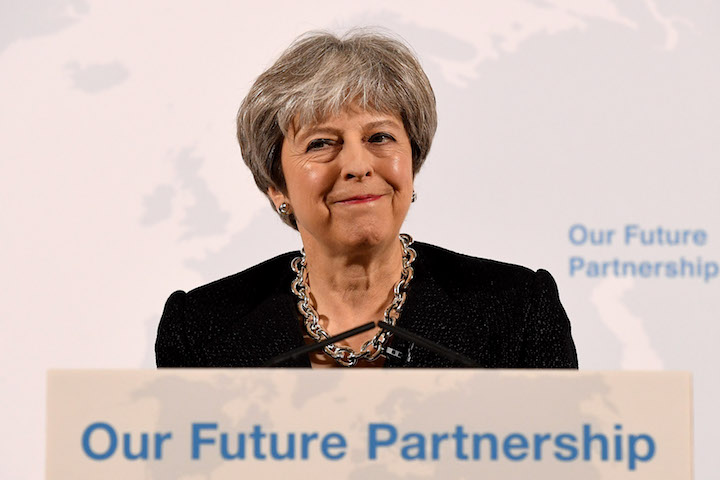Despite the rather muted colours for the staging of her Road to Brexit speech, Theresa May tried to make her address as upbeat and cheerful as it was possible to be. She started by talking not about Brexit but about her agenda, restating a great deal of what she said on the steps of Downing Street when she became Prime Minister. Perhaps this was because May is worried that people have forgotten what her domestic mission is, or perhaps it was because she felt it would be best to suggest that Brexit could play a large part in making Britain a better, happier and less divided country.
She said that her Downing Street pledge 18 months ago ‘is what guides me in our negotiations with the EU’, and then offered a very strongly values-based list of what she felt was important in the negotiations. These included an assessment that the referendum result was ‘a vote for wider change, so that no community in Britain would ever be left behind again’, and that Britain wanted to be ‘a modern, open, outward-looking, tolerant, European democracy’. She insisted that Brexit needed to ‘strengthen our union of nations and our union of people’, adding that ‘we must bring our country back together, taking into account the views of everyone who cares about this issue, from both sides of the debate’.
Her speech was naturally addressed to the European Union first, then to British voters, with her party in third place. But the arguments about uniting two sides of the Brexit debate clearly apply to the Conservative party too, which will find things to be uncomfortable and relieved about in today’s speech.
What both sides may be pleased with, though, is the rather empathetic, optimistic tone that May did try to strike about the matter overall: Brexiteers are always keen for senior Tories to give the impression that they can see huge benefits for British society and industry in leaving the EU, rather than just suggesting that it’s a lot of painful hard work, while Remainers are very worried about the bitter divisions they see opening up in political debate. The language will mean very little, though, if there isn’t a concerted attempt to get both sides in the Tory party into a position where they respect one another, rather than calling members of the other side ‘traitors’ or suggesting that they should be thrown out of the party. That may be even more difficult than the ups and downs of the months ahead that May predicted for her talks with Brussels.







Comments